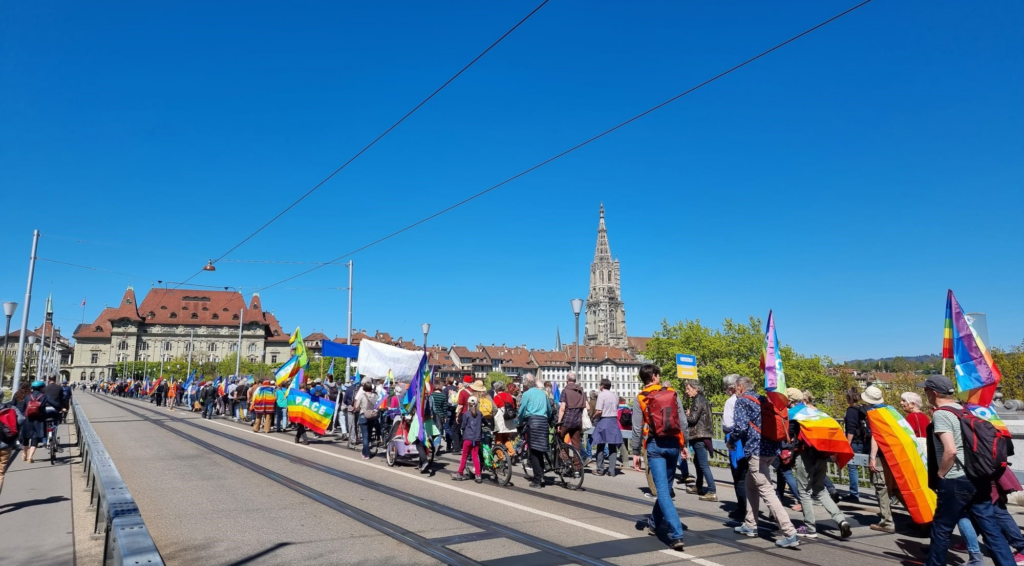
Every day, the news and photographs make plain to us the unspeakable suffering caused by war. How can this war be stopped? This is the question on everybody’s mind. Time to take a look at the industry financing the war.
Since the Russian military began its brutal war of aggression against Ukraine in violation of international law, we have seen a strengthening of the desire for armament and a rise in the discourse on military security. In the first half of 2022, munitions accounted for around CHF 517 million of Swiss exports. This figure far exceeds the exports in the first half of 2020, the year when the last annual record was set. Even in the public discourse, it is continuously suggested that there is no alternative in the current global geopolitical climate, and only militarization can pave the way to a safer and more peaceful future. As a feminist peace organization with a long tradition of demilitarization and working towards feminist peace, we are far more concerned with the question of how warmongering actors—in this case, Putin’s Russia—can be deprived of the weapons and necessary resources so as to bring this war to an end as soon as possible, instead of relying on weapons as an instrument for building security or even peace. We are by no means the first or only people to ask this question. Nevertheless, faced with the magnitude of suffering caused by Russia’s war of aggression, it is a more urgent one than ever. Because here in Switzerland, we are far from having exhausted all the peaceful, political means of working to bring the war to an end.
The need for wealth redistribution
Aside from the need to stop enormous amounts of money from flowing into warmongering regimes, there are many other reasons to better regulate Switzerland’s commodities market. Energy prices all over the world have risen significantly due to the invasion of Ukraine. Multinational corporations, Swiss banks and commodities trading centers such as Zug are able to increase their profits because of this. However, lower income households in Switzerland are being hit particularly hard by the associated inflation. The global situation is yet more alarming. According to the World Bank, an additional 95 million people were driven into absolute poverty last year as a result of the pandemic and the effects of the war in Ukraine. In their report “Profiting from Pain” published to coincide with the World Economic Forum in Davos, the emergency aid organization Oxfam even operates on the assumption that the actual total is more than double this figure. Oxfam is calling on governments around the world to tax corporations and the super-rich more heavily and to use the proceeds to cushion the blows of the crises, bolster education, healthcare and social security systems, and ensure global vaccine justice. It is high time we have a debate about redistributing the horrific profits that have been made at the expense of already heavily marginalized people. This is precisely what feminist peace policy is meant and aspires to be: analyzing power structures and links between poverty, conflict and economic and geopolitical interests; exposing global injustices, unequal distribution of resources and their structural causes; and, last but not least, asking who is responsible for them.